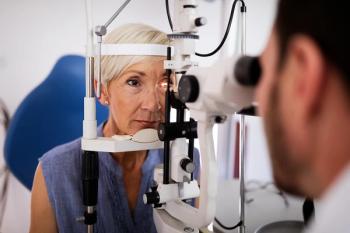
- September digital edition 2022
- Volume 14
- Issue 9
Study: Skipping breakfast linked to decreased risk of AMD
Korean investigators have found intermittent fasting may actually lead to a lower risk of developing AMD in the elderly population.
Skipping breakfast may actually be a good thing for a select population, according to Korean investigators.
New research has found that avoiding this meal is associated with a lower risk of developing
The investigators, led by Eun Young Choi, MD, from Yonsei University College of Medicine, Seoul, Korea, conducted a cross-sectional study1 using population-based, government-led survey data to analyze the link between intermittent fasting and AMD in a general elderly population.
Related:
Over 4,500 patients from the database were included who were 55 years of age and older and had data that reflected their frequency with which they ate meals as well as available fundus photographs. The investigators identified 4,504 patients between 2015 and 2018.
The subjects then were divided into 2 groups based on how often they ate breakfast during the week; the groups were comprised of individuals who engaged in intermittent fasting defined as nearly 0 time/week and those who did not fast defined as 5 to 7 times/week.
The risk factors for developing AMD seen on fundus photographs were analyzed.
The results showed that a quarter of all patients had AMD.
Related:
The researchers found that the intermittent fasting group had a decreased risk of AMD compared to the non-fasting group and this was especially true in subjects younger than 70 years, those who were obese, and those who lived in cities.
They also reported that increased age and serum high density lipoprotein levels also were independent risk factors for development of AMD.
“We demonstrated that intermittent fasting by skipping breakfast was significantly associated with a reduced risk of AMD in a representative elderly population, especially in individuals with age less than 70 years, obesity, and urban residence,” Choi and colleagues stated.
Reference
1. Choi EY, Kim M, Lee CS, et al. Intermittent fasting is associated with a decreased risk of age-related macular degeneration. Am J Ophthalmol. 2022 Jul 6;S0002-9394(22)00255-0. doi: 10.1016/j.ajo.2022.06.017
Articles in this issue
over 3 years ago
Help your practice rank higher in local Google searchesover 3 years ago
A look at the latest lenses on the market and their modalitiesover 3 years ago
Higher-order aberration correction with scleral lensesover 3 years ago
Importance of communication between providersover 3 years ago
What to know about new topical presbyopia-correcting dropsover 3 years ago
Supplements slow AMD progression, study data confirmover 3 years ago
Welcome to the EVO-lutionover 3 years ago
Dry eyes: A price to pay for clear skin?Newsletter
Want more insights like this? Subscribe to Optometry Times and get clinical pearls and practice tips delivered straight to your inbox.




























